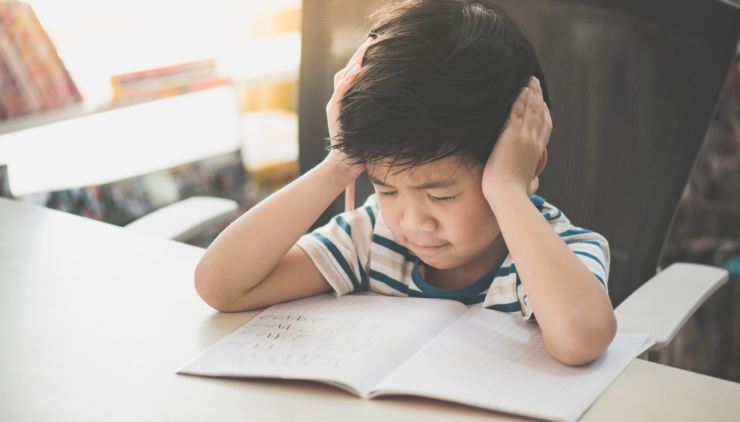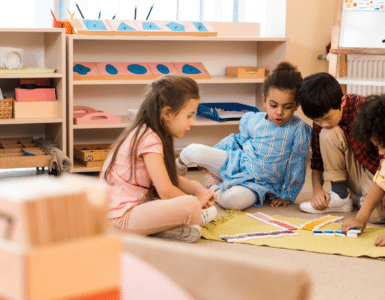What should you do if your child says they hate school?
No matter your child’s age, listen to them if they tell you they don’t like school. Don’t just pass it off as the child being difficult for no reason.
When younger kids say they hate school or don’t want to go, it’s typically not because the school is terrible or the teacher is mean. Something else might be going on, but younger children don’t have the language or self-awareness to vocalize the real problem.
Older kids and teens might hate school because it is not for them or because they clash with their teachers.
Is Your Child Sleeping Enough?
Lack of sleep affects a child’s mood, concentration, and focus. If your child is not on a consistent sleep schedule, that could be why they’re struggling at school.
Start Asking the Right Questions
If sleep isn’t the problem, you must figure out what is.
There are a ton of questions to consider here. Is your child anxious in social situations? Have there been any significant changes at home? Is your child being bullied? Is their teacher’s personality not compatible with your child? Is the school’s learning approach not a good fit for your child?
Might your child have a learning disability?
Many things could be the problem. You’ll need to explore each possibility and identify clues, a bit like a detective solving a case.
Talk to Your Child’s Teacher
Your child’s teacher might have some insight into what is causing them not to like school. The teacher can also tell you how your child behaves during school hours.
Talking to your child’s teacher will also help you determine if that teacher’s personality and teaching approach is compatible with your child.
ALSO: Does Self-Directed Learning Breed Success?
If you think the teacher is incompatible, ask the school if you can change teachers.
If not, you might need to change schools or homeschool.
Talk to Your Child About Why School is Fun
With younger kids especially, it’s important to help them associate school with having fun. Ask the teacher to let you know when your child really enjoyed an activity so that you can talk to them about it at home. When your child is saying they don’t like school, you can remind them of that activity they really liked.
Read books to your child about characters going to school. There are lots of funny picture books that show how much fun school is. Check out this list of hilarious books about school.
Find a School Buddy for Your Child
Quieter kids have a harder time making friends. A lot of the time, they want friends but don’t know how to approach others. Ask your child or child’s teacher which kids they like to be around.
ALSO: Parenting Style — Are You Authoritative, Permissive, or Authoritarian?
Try to set up playdates with a couple of those kids and see if your child is able to make a friend to help them feel more comfortable at school. You can’t force these things, it just has to happen, but you can at least hang out with some other kids outside of school to encourage your child to be more social and make friends.
Find Another School
If your child is miserable at school no matter what you or their teacher does, then it might be time to find another school. If your child is going to a traditional school, look into a play-based learning approach like Reggio Emilia or Montessori.
There are so many different kinds of schools out there that reject boring and traditional classrooms. A quick Google search can let you know if there are any schools like that in your area.
Homeschooling
Homeschooling might be the best option if you can’t seem to find a school that fits your child. Check out homeschool.com for lots of info on how to get started if that is the right path for you and your little one.








Add comment